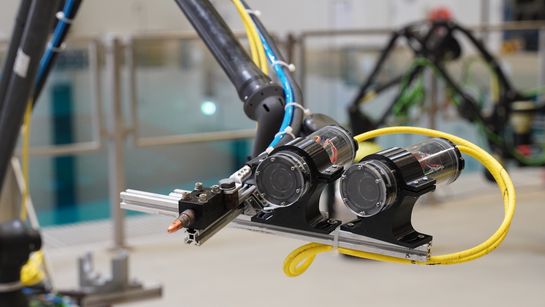
Autonomous Systems
Autonomous systems act independently, learn, solve complex tasks and can react to unpredictable events. This does not only refer to classical robots but also to intelligent machines, devices or software systems that are used in special areas in the interest of humans. For example, the mobility of the future will be determined by autonomous vehicles. Autonomous systems will also support disabled people in the domestic environment. In addition, they will be able to interact flexibly with workers in production and act independently where it is too dangerous for people. Artificial intelligence provides the key technologies in the areas of machine learning, cyber security and agile IT infrastructures that are crucial for the further development and use of autonomous systems.





